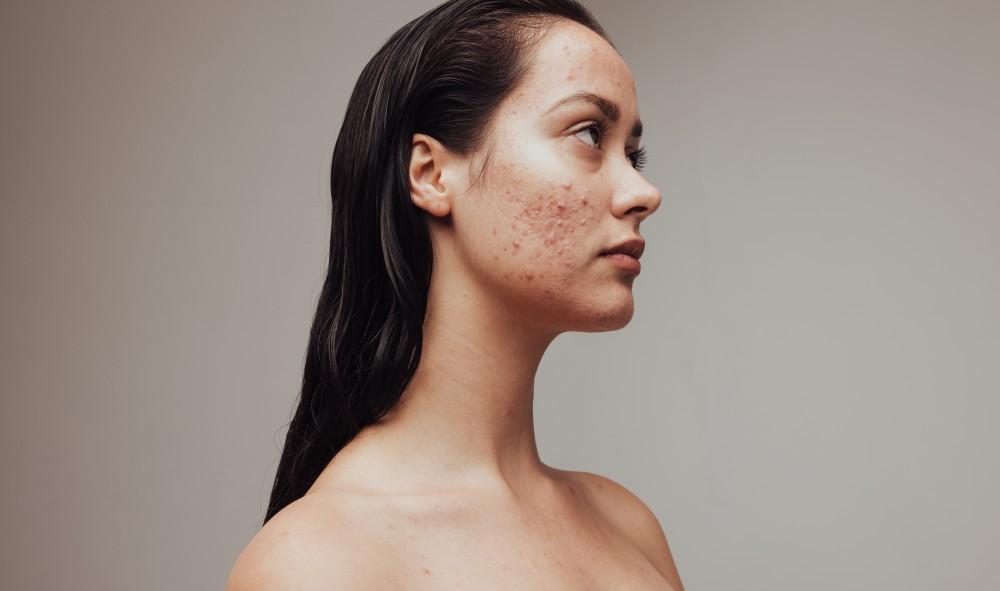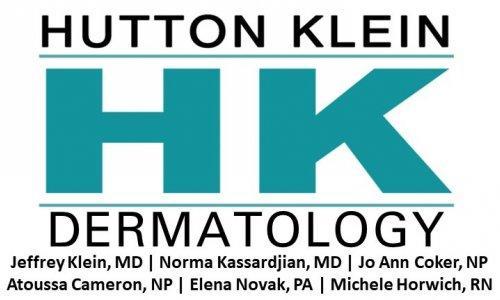
What Causes Adult Acne?

Adult acne has reached an unprecedented high in recent years, to such a degree that dermatologists have seen a rise in treating acne alongside wrinkles and treating adults even up into their 50’s for unwanted skin breakouts. The causes of adult acne may be from a variety of factors including hormones, diet, stress, environmental pollutants or your makeup and cleansing regimen.
Hormones
Even though in the popular imagination hormone-fueled acne breakouts belong to the realm of teenagers, adults can still suffer from breakouts due to fluctuations in hormone levels. Excess testosterone can contribute to large cystic pimples near the neck and back area. Even the menstrual fluctuations that women go through each month can cause breakouts as estrogen levels rise and fall over the month.
Stress
We can blame stress for a variety of health ailments, and acne is no exception. During periods of stress, our adrenal glands work overtime and pump out cortisol. Cortisol can aid the body in dealing with short-term stresses, but elevated cortisol levels over the long term can cause a variety of problems including increased testosterone and increased oil production by our oil glands.
Environmental Toxins
Pollution and environmental toxins build up on your skin and clog pores. If you live in an area where there is a lot of pollution, consider that each time you go outside, your body becomes covered with the surrounding pollutants. The best thing you can do if you live in a highly polluted area is to clean your skin often and avoid going outside on high-pollution days.
Makeup and Cosmetics
Cosmetics can also clog pores and prevent your skin from breathing and cycling out toxins. Make sure that if you have oily, combination or acne-prone skin, you’re using products that don’t contain oil or that you’re using water-based products. Lotions are notorious for clogging pores, so be sure to read labels and use only those that won’t. Not cleaning your skin frequently enough or cleaning it too frequently can also have a negative impact and cause pimples. Washing too much can irritate skin and cause your skin to stimulate excess oil production, especially if you use harsh cleansers. Not cleaning off makeup or cosmetic products at the end of the day can prevent your body from getting a chance to clear your skin of bacteria.
Diet
While it’s hard to pin down any one specific food as solely responsible for breakouts, except for perhaps excess iodine, which has shown a correlative relationship with acne, many people get pimples when they eat specific foods. In that case, it’s important to avoid any foods that you know can trigger acne if you want to have clear skin.
Sugar
The one culprit that’s known to have a relationship to acne is sugar, which is available in a variety of foods, because it increases insulin production. Increased insulin can increase testosterone as well and thereby increase oil production in the skin. If sugar causes you to break out, decrease consumption and eat foods that don’t cause a dramatic increase in your insulin levels.
For Adult Acne Sufferers
Trying the methods listed above should hopefully cut down on breakouts. Keep in mind that the goal is to decrease your skin’s oil production, so try the ones that seem the most likely to create this effect. Even if you’ve tried all of the above to no avail, there may still be solutions for you.
If you’re suffering from adult acne, please get in touch with us for a consultation.
You Might Also Enjoy...


Why You Should Start Getting Light Chemical Peels Regularly

Get a Head Start on Your Beach Body With Tumescent Liposuction

Why Do I Keep Getting Cystic Acne?

Signs It's Time to Get Help for Psoriasis


